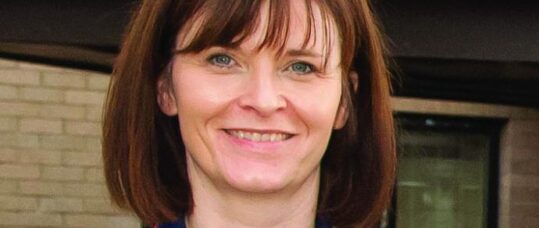Working together

Recently I have done some targeted work with our local care homes as a few of them are experiencing higher numbers of hospital admissions for their residents.
This has included looking at the patients’ emergency healthcare plans and supporting staff in what to do if patients become ill.
Related Article: Weight loss medication is no magic wand
If we know a patient is susceptible to a certain condition like a urinary tract infection, we can do a urine test which will diagnose the infection. We can give them patient-specific rescue medication to help them in this instance. We can also do the same for a chest infection. Therefore, by encouraging care home staff to remain vigilant and understand the symptoms and what they indicate, they can act in a timely way and prevent the infection developing and requiring hospital treatment. Being proactive like this really helps to engender confidence in the care home staff and encourages good team working, while improving care for patients and preventing hospital admissions.
We are also currently looking at streamlining our work with social services to benefit patients. Where we have patients who are receiving social care and are quite socially stable, we can ask them if they feel safe and happy and if everything is okay with their social care. From this we can then report back to social services and prevent a duplicate visit by a social worker to reassess their needs.
We are seeing some patients three or four times a week and if their social care needs have been the same year on year then they are suitable patients for us to engage with in this way and report back to their social worker. It alleviates the need for a visit from a social worker who can focus on social care clients with greater needs. It also keeps the continuity of care for the patient who is seeing the same healthcare professionals and not being asked the same questions by different people.
This way of working has followed on from our brokerage system, which we have in place for our palliative care patients. The district nurses are the specialist nurses involved in their care. As a care manager for a palliative patient, I would liaise with the local hospice, Macmillan, GPs and the broker.
Related Article: NHS plan delivery must equip and empower nurses, midwives and nursing associates
I decide what the patient’s social care requirements are and pass this information on to the broker, who organises the care. It may be re-ablement; the provision of a sitter to let the carer go out, or to enable a patient to go shopping themselves, or for a drive in the car. As the disease progresses, the care package changes; carers may be required to bathe the patient, prepare food, or to help them during the night. This system for patients as they reach the end of their life is very flexible. It also means that the patient and their family are dealing with one team, which may be reassuring for them.
The brokerage system started in Hexham, West Northumberland and has worked very well. It is changing the way we organise care on behalf of patients as we pass on the social care requirements of the patient to social services.
Related Article: Nursing in Practice launches ‘How Nurses Count’ campaign
The NHS as a whole is working and delivering care in a tighter economic climate and we have to think of effective ways of working within our resources.
Joined-up ways of working are set to be enhanced in Northumberland with the area having been named as a vanguard site by NHS England. Our trust is working with a range of partners to pioneer new models of care shaped around patients’ needs. We are finding that these new ways of working are improving communication and tightening up relationships between teams and reducing the duplication of effort for the professionals and the patient.

See how our symptom tool can help you make better sense of patient presentations
Click here to search a symptom


Community nurses are playing a central role in the joined up of health and social care



